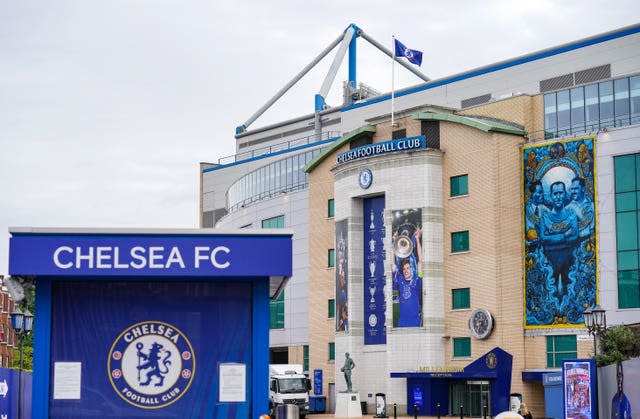Peers criticise Abramovich’s failure to donate Chelsea sale funds to Ukrainians
A parliamentary watchdog has criticised the failure of former Chelsea owner Roman Abramovich to hand over proceeds from the club’s sale to support Ukrainians.
The Russian billionaire owned Chelsea FC for 19 years until he was sanctioned by the UK Government in 2022 for what it called his enabling of Russian President Vladimir Putin’s invasion of Ukraine.
The House of Lords European Affairs Committee said it was “incomprehensible” that the oligarch’s pledge to donate the money raised from the sale to victims of the conflict “remains unfulfilled” and that the Government has not yet “resolved the problems” around the frozen assets.
A charitable foundation is being established to distribute the funds from the sale of the Premier League club in May 2022 for £2.5 billion – then the highest price paid for a sports team.
But the process “has reached a stalemate, with neither the Government nor those tasked with creating the foundation taking responsibility to progress the matter”, the committee’s inquiry was told.
The cash is frozen in a UK bank account amid “disagreement” about where it should be spent, with the Government insisting it benefit Ukrainians, peers were told.
The impasse “reflects poorly on Mr Abramovich and the Government for failing to enter into a more binding commitment”, the report said.
“The Committee urges the Government to use all available legal levers to solve this impasse rapidly so that Ukraine can receive much needed, promised, and long overdue relief. All of the funds should be spent in territories controlled by the Ukrainian Government.”

The inquiry by the panel, which is chaired by former national security adviser Lord Ricketts, also raised concerns about the “growing evidence that Russia has been able to circumvent” western sanctions.
Tanker fleets flying flags of states with limited regulation have been used to evade the price cap set by G7 countries on Russian oil and gas.
Peers urged ministers to list measures taken to tackle circumvention and set out plans to improve the UK’s “weak” sanctions enforcement, including through closer co-operation with the EU.
Lord Ricketts said: “The Government’s work in response to Russia’s aggression so far should be commended, but there is more work to be done. A key priority for the Government must be to enforce sanctions that have been introduced and eliminate third-country circumvention.
“There is also a need to finally unlock frozen Russian assets to support the reconstruction of Ukraine, including the funds from the sale of Chelsea Football Club. It is incomprehensible that this has not happened yet.
“Finally, Ukraine has to continue to receive support for as long as it takes to reverse Russian aggression. The coming months will be critical and any reduction in US support could leave Europe badly exposed. The UK, EU and other European partners must be prepared for a scenario where they may need to take on a greater share of the burden.”
As well as facing UK sanctions, Mr Abramovich was punished by the EU in 2022 as part of measures targeting Russia and Mr Putin’s close allies.
The bloc said the tycoon “had privileged access” to the Russian president and “maintained very good relations with him”, and that his economic activities provided substantial revenues to Russia’s government.
He was a major shareholder of the steel group Evraz, one of Russia’s largest taxpayers, and was therefore benefiting from Russian decision-makers responsible for the destabilisation of Ukraine, the European Council said at the time.


